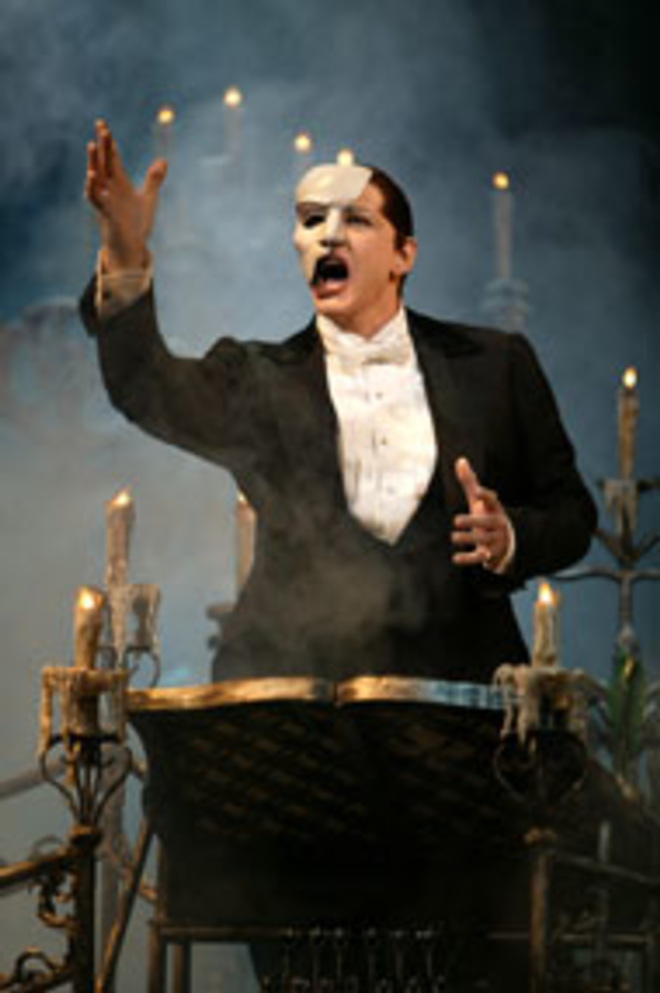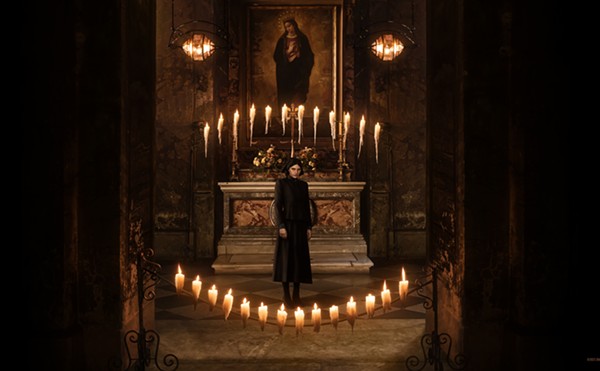It's been 18 years since Andrew Lloyd Webber's The Phantom of the Opera first opened in London. By now, it would seem, everyone on earth has seen Phantom at least once, and some people — hypnotized by Webber's music, or Charles Hart and Richard Stilgoe's lyrics, or Harold Prince's direction, or (not improbably) the play's special effects — have apparently hastened to the haunted opera house multiple times. So what use is a humble theater critic in the face of this juggernaut? What can I say about Phantom that isn't 60-times- redundant, too little too late, been there done that, what else is new? I suppose I could talk about the performances at Phantom's most recent Tampa reincarnation — how understudy Tim Martin Gleason was magnificent as the Phantom on the night I saw the show, how understudy Stephen R. Buntrock was perfect as his rival Raoul, and how Rebecca Pitcher, as the object of their affection Christine Daaé, has an operatic voice that's truly unforgettable. Or I could comment upon the Andrew Lloyd Webber phenomenon all these years later, looking for the thread that connects Phantom with Evita, Cats, Starlight Express and Sunset Boulevard.
Or finally, I could muse upon the local cultural significance of the packed TBPAC house (Morsani Hall, accommodating 2,500) when a serious drama in the Shimberg can barely fill 99 seats. Yeah, that's a good angle: What does Phantom tell us about Bay area theater audiences?
But no, there's another approach that's much more urgent. In short: It's time to analyze the Phantom phenomenon. Literally 100 million people in 20 countries have seen the show since its first appearance. Why? What's behind it? What subtle psychological mechanism has driven millions of otherwise sensible theatergoers into the Phantom's tenebrous embrace?
Let me remind you of the plot: A specter is haunting the Opera Populaire. A hideously disfigured ghost of a being is pulling strings, making demands, raising Christine Daaé to stardom while sending rival opera singers to their demise, real or metaphorical. In fact, the Phantom has come to rule the opera house. He insists that the opera he has written be performed; he sends a mammoth chandelier crashing to the floor in a fit of pique; he threatens management and talent with horror if he's not indulged. He's mean, he's bad and he's in control: What does it mean?
I'll begin with an old, foreign proverb: The darkest place is under the lamp. And now, to elaborate: each personality (says Jung) has a dimension called The Shadow. This is where all unacceptable impulses and behaviors go, this is where all the crimes and sins and outrages we refuse to enact are stored, as if in a murky, distant cellar (note the Phantom's subterranean lair). Although we may try to disown it, the Shadow is as much ours as are the parts of our personality we happily acknowledge. And until we recognize our Shadow, we're, at least in part, alienated from ourselves.
So now, back to The Phantom. It takes place, importantly enough, in a beautiful, lavish opera house (designed by Maria Bjornson). What is an opera house? It's a luminous building devoted to the one art that famously combines all the arts, where song and narrative and sculpture and architecture and costumes and lighting cast their dazzling spell. But so much beauty means great repression of the inartistic — of the malformed, the disfigured, the vicious, the obscene. And in this particular opera house, this ghastly Shadow has congealed into semi-human shape. It's become the Phantom. And worse than this: The Phantom has finally rebelled against its repression, it's risen up from the unconscious and, believe me, it's pissed.
Now this trashbin, this dung heap, is going to make artistic decisions. Now the junkyard's going to write operas and create the next diva. When the repressed breaks through to consciousness and declares its revenge, you can be sure that we're in for one nasty psychosis. (Not irrelevant, by the way, are the two operas we see in rehearsal during the play: one about Hannibal, a "barbarian" who challenges "civilized" Rome, the other about Don Giovanni, a libertine who challenges orderly society's sex rules.)
So what we're seeing for most of The Phantom is a psychotic episode on an institutional scale. The most brilliant opera house in Paris has made its reputation by repressing, more successfully than any other stage, its hideous Shadow. That Shadow takes form as the Phantom and strikes back. It terrorizes management and artists alike, and demands it be given effective rule over the operatic body. It even chooses a nobody out of the chorus line — Christine Daaé — and insists that she become the star of all Paris. Management submits, Christine becomes a superstar, and it seems that the psychosis — the Phantom — will prevail.
But the disease has a cure, after all: The acceptance of the Shadow not as an Other but as part of the Self. And sure enough, as long as Christine rejects His Ugliness, as long as she runs from him, his power is unbroken. But when, near play's end, she finally embraces The Shadow — when she passionately kisses him, absorbs him as her own — he's disarmed, defeated, defused, rendered harmless. In his last breath, he orders her to depart with her lover Raoul. And then he does precisely what he has to — he disappears.
At the last moment of the play, all that's left of him ... is his mask.
So what's The Phantom really about? Why has it attracted tens of millions of spectators (besides the obvious: lovely songs, gorgeous sets, splendid costumes)? We go to see Phantom in order to fight it out with our own Shadows — vicariously, symbolically — then to accept them, thus to be healed. Being an art lover (opera lover, musical lover, Mozart addict, Chekhov votary) means the same sort of repression that produced the hideous Phantom. Christine embraces him for all of us, leaving us healthy enough to attend many more musicals, maybe a straight drama, maybe even a little Shakespeare.
In short: We go to see Phantom because it's cheaper than several years of psychoanalysis.
He's there, in the cellar of every art lover's mind.
You might as well deal with him — if you haven't already.



















